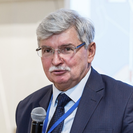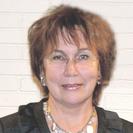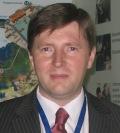Мой профиль

язык курса
длительность курса
понадобится для освоения
для зачета в своем вузе
In our course, you will become familiar with the basic concepts of renewable energy. Get an idea about the basics of determining the potential of renewable energy resources, including its territorial, temporal and climatic variability.
We paid great attention to the study of modern technologies for converting solar, wind and hydropower, as well as to operating modes of power plants based on renewables in power supply systems for autonomous and grid consumers. Within the framework of the concept of sustainable development, analysis and quantitative comparison of the environmental impacts of organic, nuclear and renewable energy is carried out. The use of design, financial and economic management tools, taking into account the development of innovative technologies for creating renewable energy equipment, allows to optimize the parameters and increase the efficiency of projects.
The course contains a large number of practical tasks to consolidate the acquired knowledge and skills in the field of using renewable energy sources.
Видеолекции, конспеты, практические задания, тесты
Module 1. Current state and development trends of renewable energy sources in the world
Module 2. Renewable energy resource assessment
Module 3. Renewable energy conversion technologies
Module 4. Use of RES complexes for autonomous power supply
Module 5. Economics and ecology of renewable energy sources
язык курса
длительность курса
понадобится для освоения
для зачета в своем вузе

Доктор технических наук
Должность: профессор Высшей школы гидротехнического и энергетического строительства, ИСИ

Должность: Ассистент Высшей школы гидротехнического и энергетического строительства, ИСИ

Должность: Ассистент Высшей школы гидротехнического и энергетического строительства, ИСИ

Кандидат технических наук
Должность: Доцент Высшей школы гидротехнического и энергетического строительства, ИСИ

Кандидат технических наук, доцент
Должность: Доцент Высшей школы гидротехнического и энергетического строительства, ИСИ
По данному курсу возможно получение сертификата.
Стоимость прохождения процедур оценки результатов обучения с идентификацией личности - 1800 ₽.
Сертификат участника обычно выдается при достижении 60% от общего рейтинга при условии сдачи работ до жесткого дедлайна. Сертификат с отличием, как правило, выдается при достижении 90% от общего рейтинга при условии сдачи работ до мягкого дедлайна.